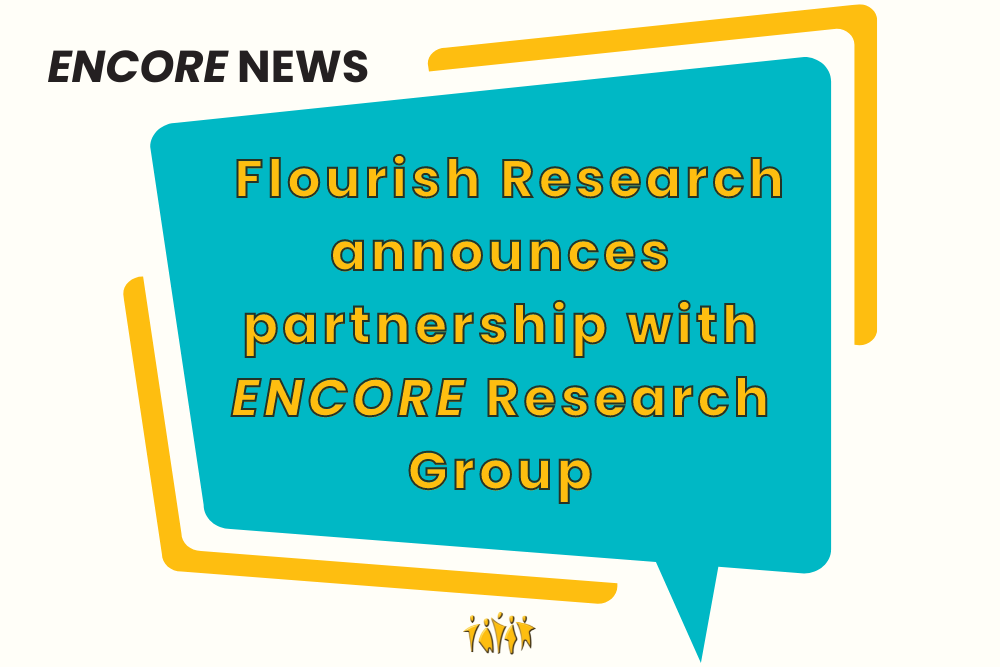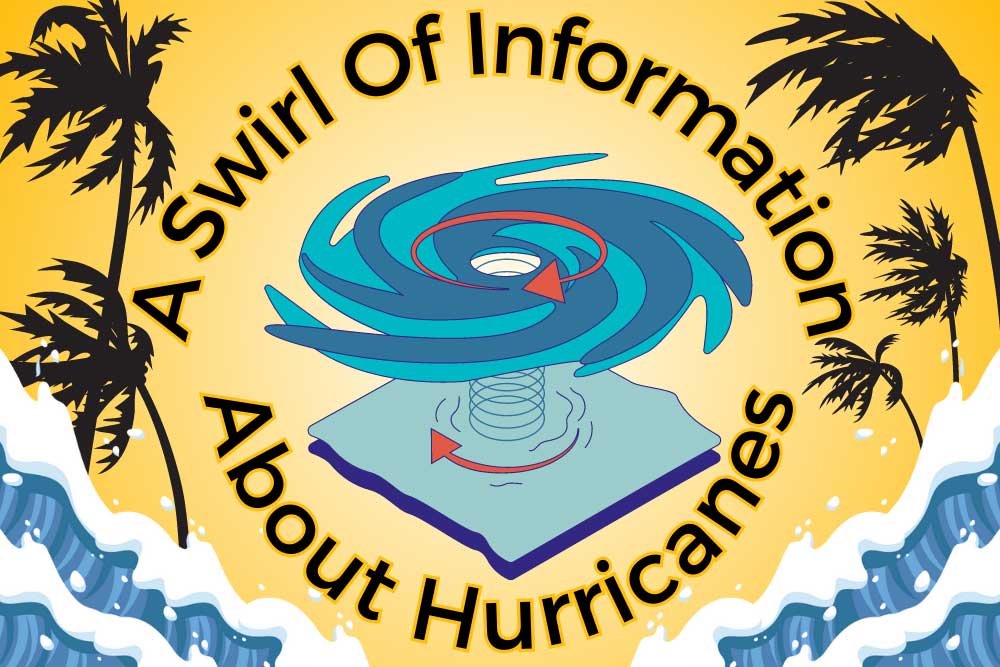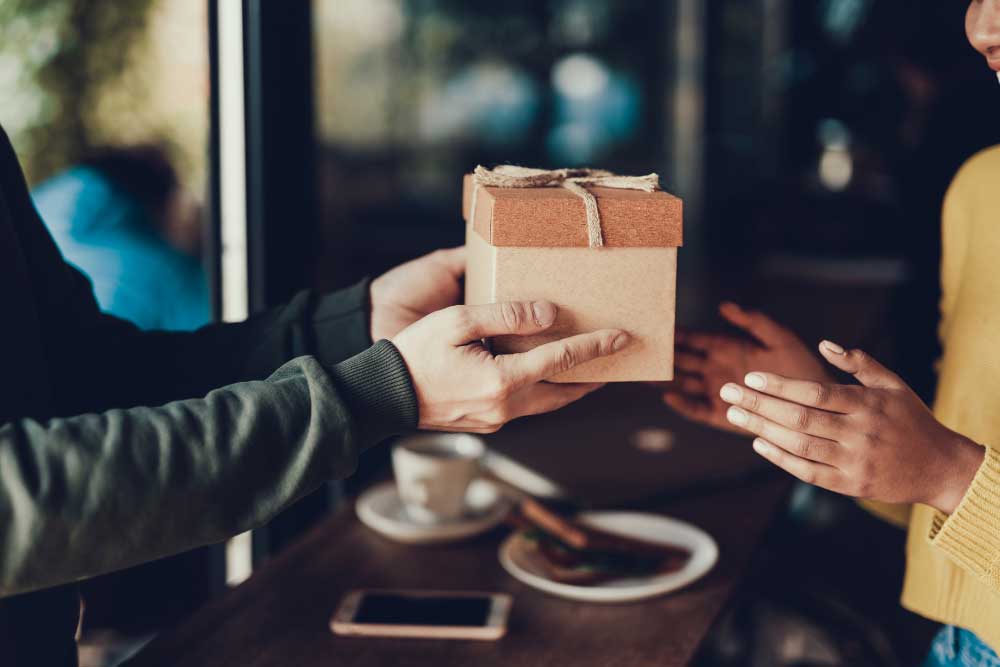Listen to the article here:
With the onset of frosty weather and short days, we can all use a boost. Luckily, giving gifts can produce a “warm glow” to help out. This isn’t just decorative talk, giving gifts has been shown to increase well-being in people across the globe. In study after study, psychologists have found that acts of kindness, such as giving gifts, have positive results on both the receiver and the giver.
In one study, scientists gave children treats while measuring happiness. The children were then asked to give treats to a puppet. These could be their own treats or ones from a researcher’s supply. The data showed the children were happier to give a treat to the puppet than to receive one for themselves and were happiest when they gave their own treat to the puppet. Overall, the cheer of giving seemed maximized when giving away more important gifts.
Why could this be, though? Why would gift giving be beneficial for the person losing something? Could it be that giving a gift clears your already extremely crowded gingerbread house and increases your Feng shui? The real answer is that gift giving is a prosocial behavior. This means that it promotes social acceptance and friendship. This is a positive behavior in social contexts. Prosocial behaviors are seen in several social animals, including apes and dogs.
Scientists have shown that giving gifts can increase synchronization between friends. In two studies, scientists hooked pairs of friends up to brain scanning devices. The friends performed cognitive tasks, then one would give the other a gift (at a random time), and they would perform the task again. The scientists found that accuracy on the tasks increased. In addition, activity increased in the dorsolateral prefrontal cortex (DLPFC). This is part of the brain located beneath the hairline (assuming you have hair). It is associated with decision making and memory, and is also implicated in suppressing selfishness and building relationships. This helps with cognitive tasks, but also with forming and maintaining friendships. Even more interesting, they found that the brain waves of friends were synchronizing! The brainwaves measured in the DLPFC would “sync up” and produce similar patterns after gift giving! Giving a gift doesn’t just increase friendship, it helps you think like your friends too!
The DLPFC isn’t the only section of the brain that’s active when giving. When giving to charity, people’s mesolimbic reward system and subgenual areas activate. The mesolimbic reward system is a general reinforcement pathway in the brain, and also rewards for things like food, sex, and drugs. The subgenual area releases important hormones such as oxytocin (the love hormone) and vasopressin. These make us feel good and increase our social happiness.
So this winter, give gifts to keep yourself warm inside and out. By giving gifts you can increase your own happiness, strengthen bonds with friends, and release dessert-like chemicals in the brain. Also, consider giving the gift of health to others by volunteering for a clinical trial at one of our ENCORE Research Group locations.
By Benton Lowey-Ball, BS Behavioral Neuroscience
Sources:
Aknin, L. B., Barrington-Leigh, C. P., Dunn, E. W., Helliwell, J. F., Burns, J., Biswas-Diener, R., … & Norton, M. I. Prosocial Spending and Well-Being: Cross-Cultural Evidence for a Psychological Universal.https://doi.org/10.1037/a0031578
Aknin, L. B., Hamlin, J. K., & Dunn, E. W. (2012). Giving leads to happiness in young children. PLoS one, 7(6), e39211. https://doi.org/10.1371/journal.pone.0039211
Balconi, M., Fronda, G., & Vanutelli, M. E. (2019). A gift for gratitude and cooperative behavior: brain and cognitive effects. Social cognitive and affective neuroscience, 14(12), 1317-1327. https://doi.org/10.1093/scan/nsaa003
Balconi, M., Fronda, G., & Vanutelli, M. E. (2020). When gratitude and cooperation between friends affect inter-brain connectivity for EEG. BMC neuroscience, 21(1), 1-12.
Curry, O. S., Rowland, L. A., Van Lissa, C. J., Zlotowitz, S., McAlaney, J., & Whitehouse, H. (2018). Happy to help? A systematic review and meta-analysis of the effects of performing acts of kindness on the well-being of the actor. Journal of Experimental Social Psychology, 76, 320-329. https://doi.org/10.1016/j.jesp.2018.02.014
Moll, J., Krueger, F., Zahn, R., Pardini, M., de Oliveira-Souza, R., & Grafman, J. (2006). Human fronto–mesolimbic networks guide decisions about charitable donation. Proceedings of the National Academy of Sciences, 103(42), 15623-15628. https://doi.org/10.1073/pnas.0604475103




